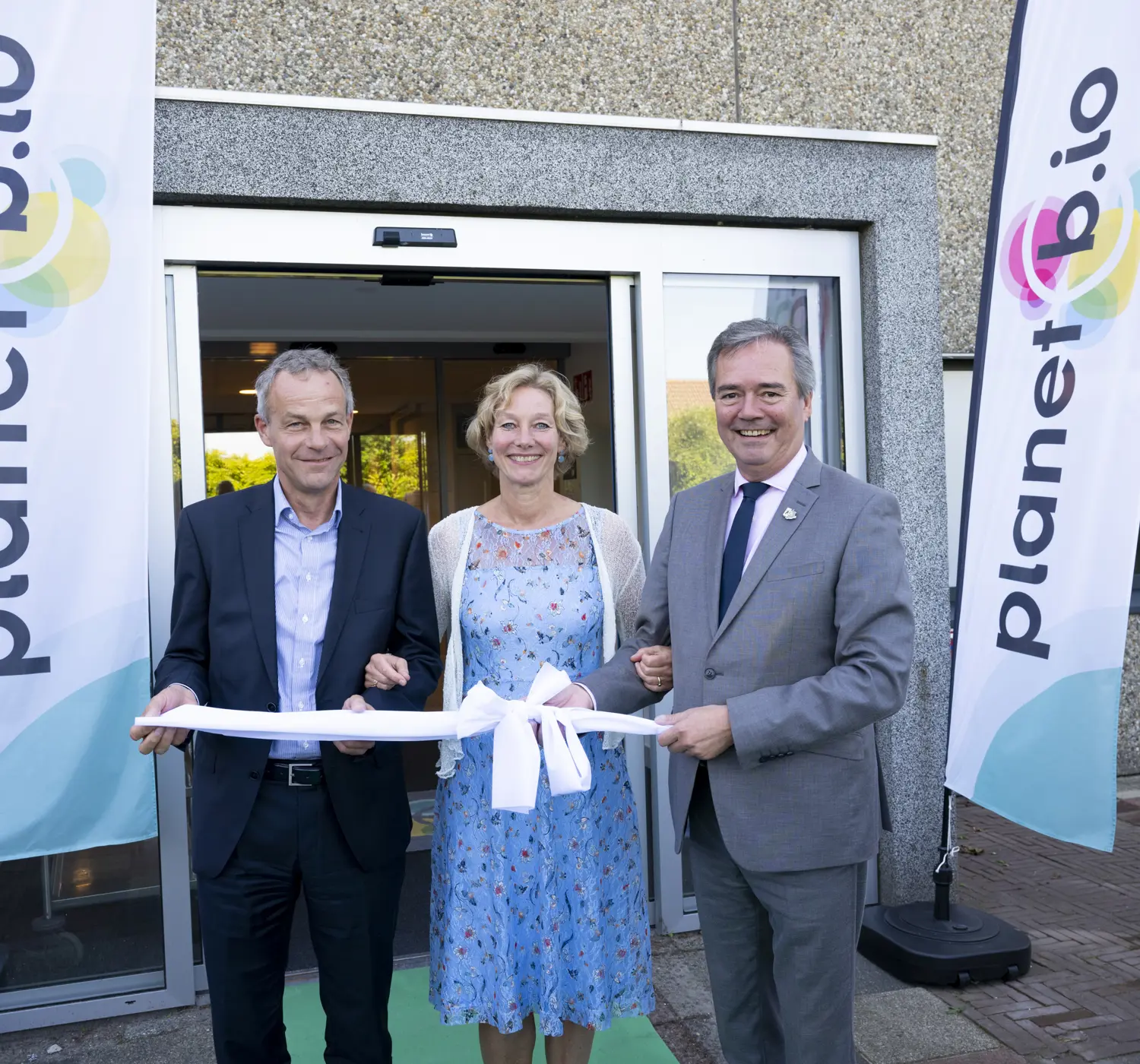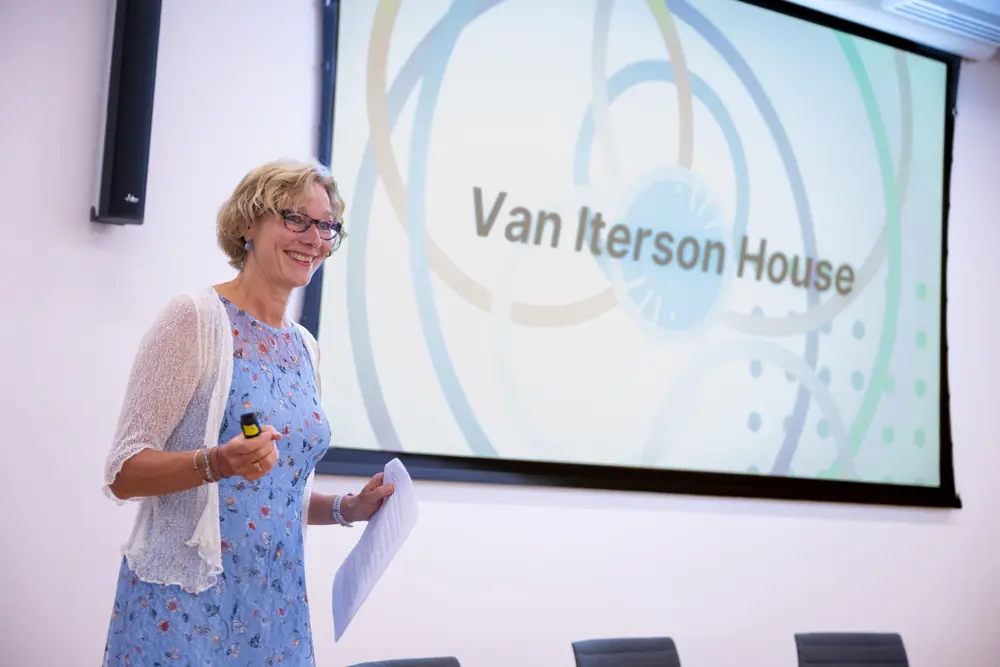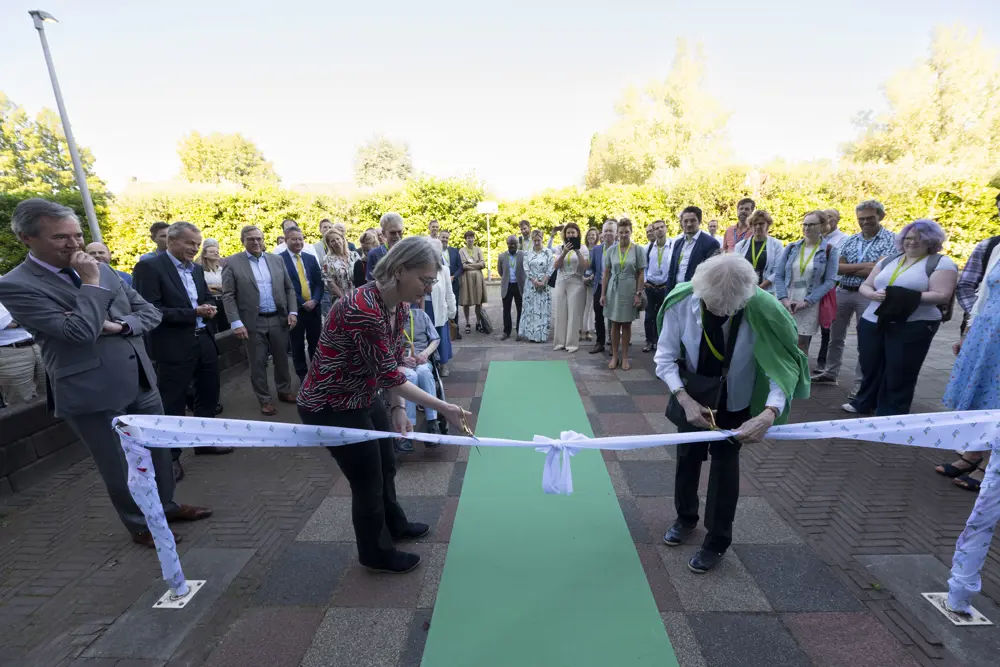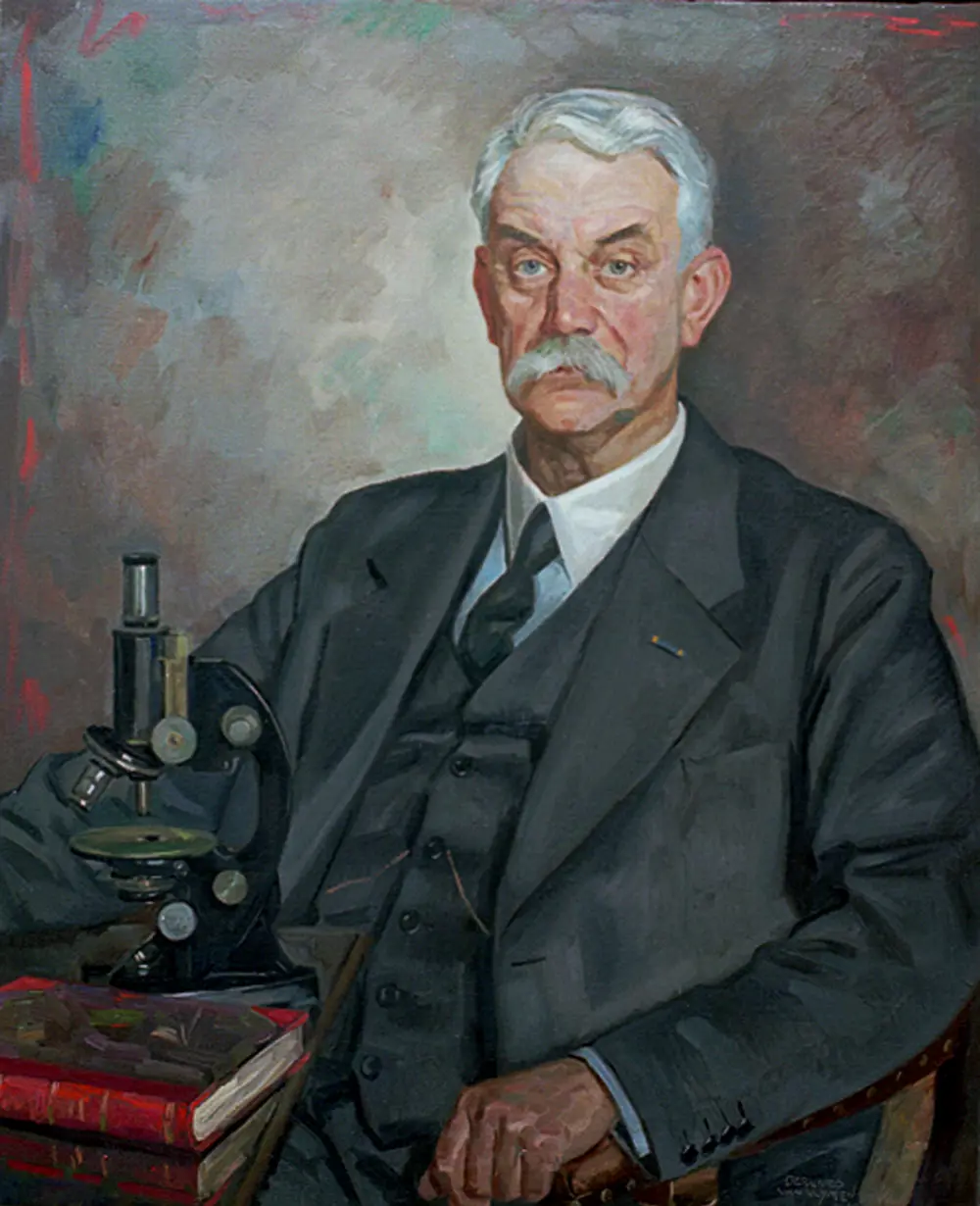08-09-2023
Grand opening of 2nd multi-tenant building Planet B.io on Biotech Campus Delft

Biotech enthusiasts and key stakeholders gathered at the Biotech Campus Delft on Thursday, September 7th, 2023, to celebrate the grand opening of Planet B.io's newly renovated second multi-tenant building, named ‘ Van Iterson House’.

It was a unique celebration highlighting the life and legacy of the building's namesake, Prof. dr. ir. Gerrit van Iterson jr. (1878-1972). Prof. van Iterson, together with Prof. Beijerinck and Prof. Kluyver, formed the basis of the world-famous Delft School of Microbiology.
The event was marked by the presence Dr. Lesley A. Robertson, renowned guest researcher and curator of the Beijerinck/Kluyver collection at Delft University of Technology. Dr. Robertson delivered an inspiring lecture that delved into the research of Prof. van Iterson. He has been particularly famous for his work in the area in applied botanie, with research on fibres and rubber, and for his work on biomathematics, describing the Fibonacci numbers in botanical structures.
After the lecture of Dr. Robertson, dr. Cindy Gerhardt, managing director of Planet B.io, had a ‘fireside chat’ with four distinguished guests about the role of Prof. Van Iterson in today’s society. Dr. James Byng, director of the Delft Botanical Garden, and Dr. Peter van Dijken, director of TNO Healthy Living and Work, commented on Van Iterson’s important legacy as founder of the garden and co-founder of TNO. Adriaan Fuchs, emeritus professor of General Biology TU Delft, and author of a series of 10 articles about van Iterson's life, described Prof. Van Iterson as a tall man with a strong personality, working until his late seventies. Last but not least, Mrs. Dorothée van Iterson shared memories of her father and her family.
Cindy expressed her gratitude to those who contributed to the renovation of the Van Iterson House. In the first place, dsm-firmenich, for making the building available to Planet B.io, and for their financial and operational contribution to the renovation. The other main sponsor of the renovation was the Province of South Holland. MRDH and the Municipality of Delft also contributed.

1800 m2 of office and ML1 and ML2 labs
After the plenary session, the guests walked to the Van Iterson House to be formally opened. Prof. dr. ir. Paulien Herder, dean of Applied Sciences at the TU Delft, and chair of the supervisory board of Planet B.io, once more thanked those that contributed to the renovation. Paulien also recognized the Planet B.io team for their efforts to further strengthen their mission to support young, innovative biotech companies, to grow the open innovation ecosystem at the Biotech Campus Delft, and to enable biotechnology as one of the key technologies to contribute to the grand challenges our society is facing today. Paulien and Dorothee van Iterson had the honour to cut the ribbon and formally open the building.
The Van Iterson House is the second multi-tenant building of Planet B.io on the Biotech Campus Delft, and it is equipped with 15 brand new, furnished ML1 and ML 2 labs and plenty of offices, ready to move in for biotech start- and scaleups.
Ready for the future
Cindy Gerhardt, director Planet B.io: “I am very proud that we have opened our second building today, two years ahead of our planning! The interior and the labs look amazing, and I look forward to welcoming interesting new companies to settle at the Van Iterson House. It is a privilege to be on a location with such rich history in biotech, and, at the same time, be directly involved in the shaping of its future.”

About Delft
In 2023, Delft was once again named the best place for entrepreneurs. The many companies, start-ups and knowledge-based institutions in the city are a source of knowledge, innovation and talent. In Delft, solutions are devised and produced for societal challenges in the fields of climate, energy, healthcare, safety and nutrition. Consequently, Delft is a hive of new activity that makes a contribution to the economy of Zuid Holland and of the Netherlands as a whole.
